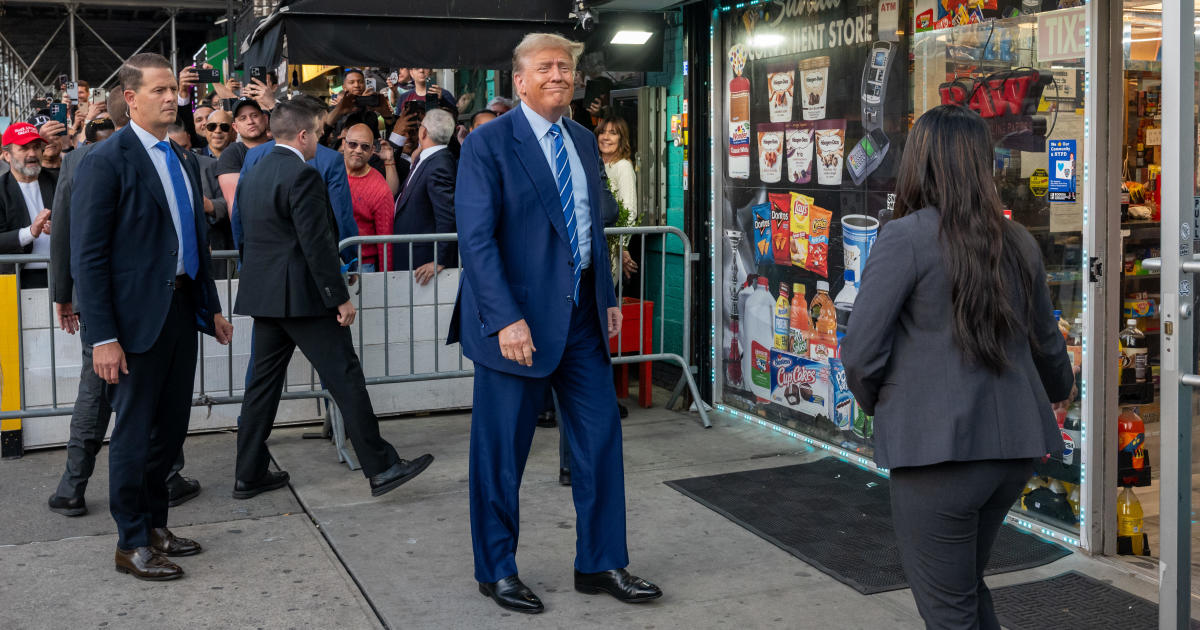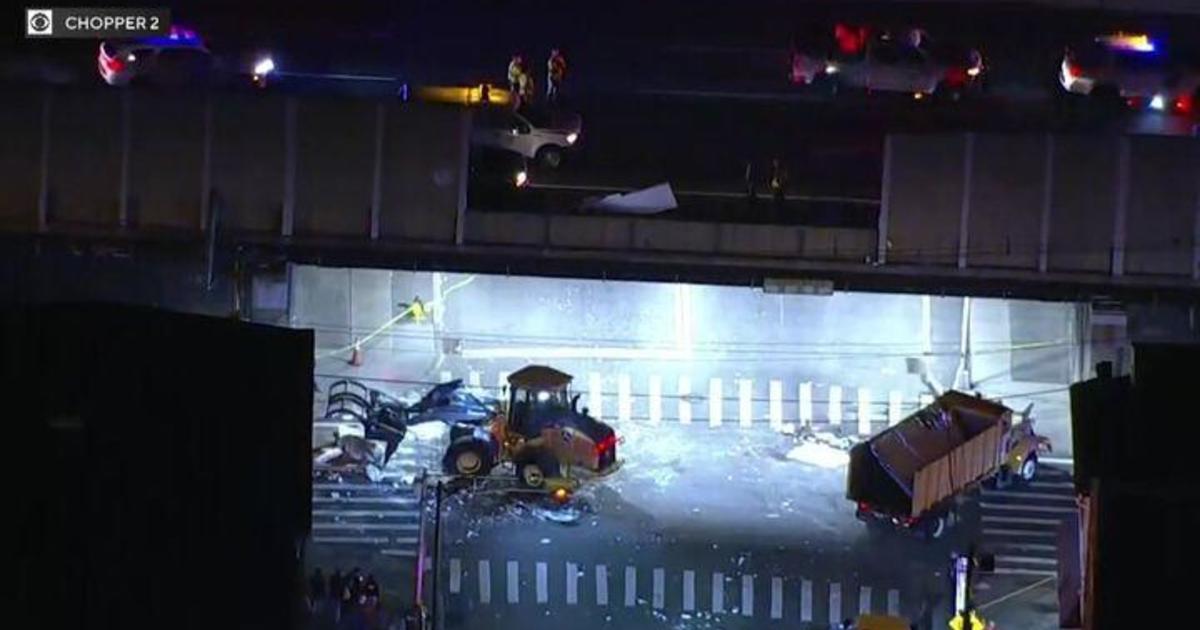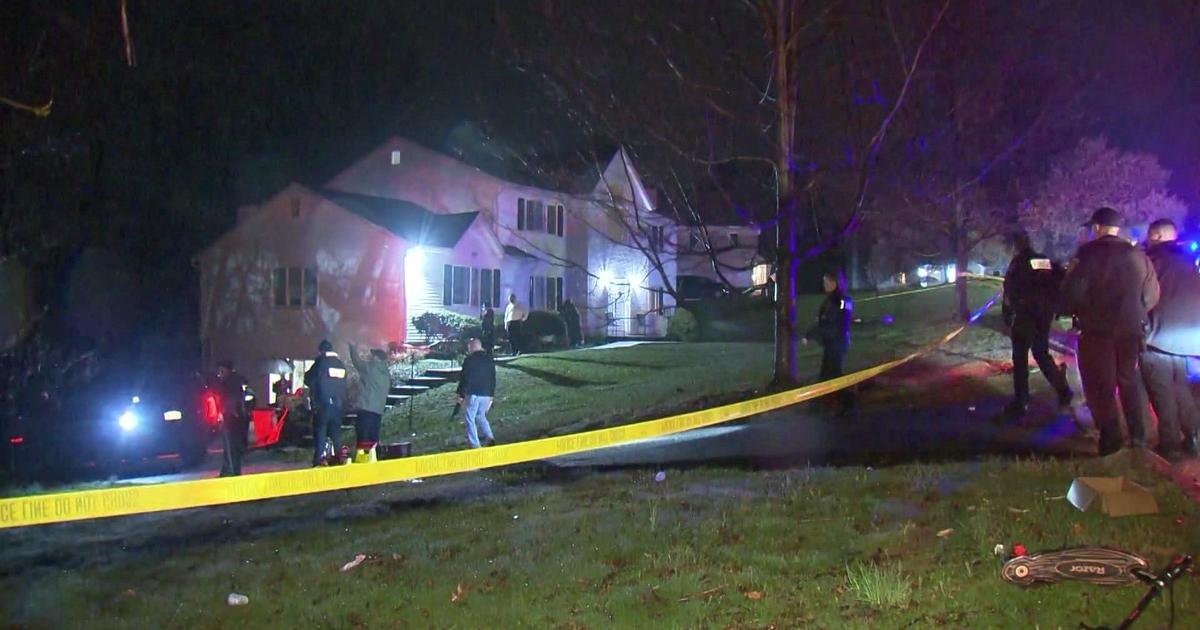Trump Says He'll Visit Puerto Rico Next Tuesday As FEMA Ramps Up Maria Disaster Response
WASHINGTON (CBSNewYork/AP) -- Nearly a week after Hurricane Maria barreled into Puerto Rico, leaving the entire island without power, President Donald Trump said he plans on visiting the U.S. territory next Tuesday.
The president said next Tuesday is the earliest he can visit without disrupting recovery operations. He said he may also visit the U.S. Virgin Islands.
"We have shipped massive amounts of food and water and supplies to Puerto Rico and we continue to do so on an hourly basis, but that island was hit as hard as you can hit," Trump said.
The president Tuesday also made additional disaster assistance available to Puerto Rico by authorizing an increase in the level of federal funding for debris removal and emergency protective measures.
Five days after the storm slammed into Puerto Rico, many of the more than 3.4 million U.S. citizens in the territory were still without adequate food, water and fuel. Flights off the island were infrequent, communications were spotty and roads were clogged with debris. Officials said electrical power may not be fully restored for more than a month.
"We've got a lot of work to do," Federal Emergency Management Agency Administrator Brock Long said Monday after arriving in San Juan. "We realize that."
The mayor of San Juan sent out an SOS, calling the situation more dire on Tuesday than the day the hurricane made landfall.
"I know that leaders are not supposed to cry and especially not on TV, but we are having a humanitarian crisis here," Mayor Carmen Yulin Cruz said.
Supplies are coming in slowly from the U.S. mainland to help millions still struggling across the island.
Puerto Rico Gov. Ricardo Rossello traveled with the National Guard to deliver aid to the town of San Sebastian.
"Two Category 5 hurricanes passing through an island is unprecedented and therefore the response needs to be unprecedented," he said.
Only a handful of flights are trickling out of Puerto Rico's main airport.
"My mother needs dialysis," one woman said. "We've been here for 26 hours."
Desperate travelers crowded ticket counters hoping to get on one of the few flights leaving for the states. CBS2's David Begnaud told the governor about the dire conditions they witnessed.
"Why can't food and water be sent there right now? I mean, there are babies who are naked in strollers. Their parents are fanning them," Begnaud asked Rosello.
"Because of your reporting that I saw last night, I ordered food and snacks to be delivered to the airport today," the governor responded.
"OK, I hear you, but it's not getting to them," Begnaud said.
"I understand and that's why immediately I'm taking action and as soon as we finish the interview I will make sure that water it's on its way and food is on its way," Rosello said.
The governor kept his word and food and water arrived a short time later, Begnaud reported.
Meanwhile, Energy Department crews are working in Puerto Rico and the U.S. Virgin Islands, coordinating with the Puerto Rico Electric Power Authority, FEMA and a team from the New York Power Authority, among others.
FEMA said it had more than 700 staff on the ground in Puerto Rico and the U.S. Virgin Islands. They were helping coordinate a federal response that now includes more than 10,000 federal personnel spread across the two Caribbean archipelagos.
In Puerto Rico, federal workers supplied diesel to fuel generators at hospitals and delivered desperately needed food and water to hard-hit communities across the island. Cargo flights are bringing in additional supplies, and barges loaded with more goods are starting to arrive in the island's ports.
Democratic lawmakers with large Puerto Rican constituencies back on the mainland characterized the response so far as too little and too slow. The confirmed toll from Maria jumped to at least 49 on Monday, including 16 dead in Puerto Rico.
As CBS2's Tony Aiello reported, a million New Yorkers come from or have ties to the island.
"Puerto Ricans are Americans," said Rep. Nydia Velazquez, D-N.Y., who traveled to Puerto Rico over the weekend to assess the damage. "We cannot and will not turn our backs on them."
Senate Minority Leader Chuck Schumer also pushed for a more robust federal response to the post-hurricane calamity on the island.
"We need all hands on deck in every relevant federal agency to help, and help now," he said.
On Capitol Hill, congressional leaders were talking about how to pay for it all. Puerto Rico was already struggling from steep financial and economic challenges before Maria made landfall.
Trump said in a trio of tweets Monday night that "Puerto Rico, which was already suffering from broken infrastructure & massive debt, is in deep trouble.''
Trump also noted that the island's electrical grid was already "in terrible shape." Still, he promised, "Food, water and medical are top priorities - and doing well."
The president continued to defend his response, praising the soldiers providing water and help distribute fuel and promising more help is on the way.
"It's out in the ocean, you can't just drive your truck out there from other states," Trump said. "And the governor said we are doing a great job."
To help spur recovery, President Trump has increased funding for storm debris removal on the island. Additionally, the feds will pay 100 percent of the cost for the next six months.
Last year, House Speaker Paul Ryan and Democratic leader Nancy Pelosi joined with President Barack Obama to help recession-ravaged Puerto Rico deal with its debt crisis. After the devastating storm, Puerto Ricans will now be eligible to benefit from the same pots of federal emergency disaster aid and rebuilding funds available to residents in Texas and Florida.
Lawmakers approved a $15 billion hurricane relief package after Harvey hit Texas, but billions more will likely now be needed to respond to Maria.
Ryan said Monday that Congress will ensure the people of Puerto Rico "have what they need."
But Rosello worries about the lasting effects if Washington doesn't pass a financial aid package.
"Humanitarian crisis will come to the United States in the form of the 3.5 million U.S. citizens that live here and what you're bound to see is a massive exodus of Puerto Ricans into the mainland," he said. "It's going to be a problem for us, it's going to be a problem for mainland as well."
(© Copyright 2017 CBS Broadcasting Inc. All Rights Reserved. The Associated Press contributed to this report.)



